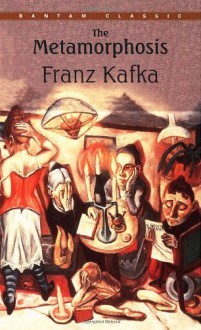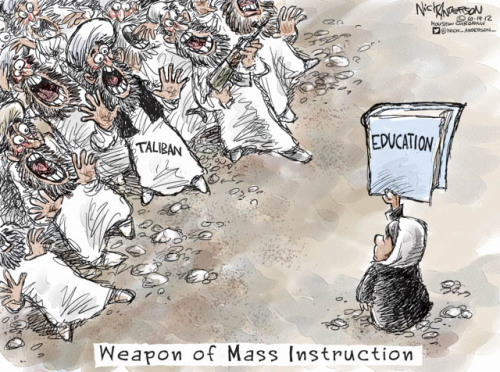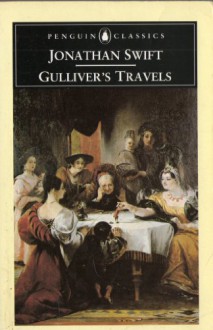
I'm sure many of us are familiar with the tale of the sailor from England who after a shipwreck finds himself bound to the beach on an unknown island surrounded by a race of people who are substantially smaller that him.

Some of you are probably even familiar with the not so recent Jack Black film (which I have seen but can't remember much of it beyond Jack Black heading out in a speed boat from Miami and getting caught in a storm).

From a very young age I have always seen this story as a children's book, however it wasn't until I reached university that I discovered that it is actually biting political satire. It is interesting how a book is released in one age and people see it for what it is however as time passes the original intention of the book takes a back seat and the story ends up taking an entirely new meaning. Mind you, the children's tales that we tend to be familiar with are quite watered down to the point that the original meaning has been lost (and most of them only tell the story of Lilliput).
It was quite coincidental that in Bible study were were looking at the book of Revelation, another text whose meaning has completely changed throughout the ages, and I immediately thought of Gulliver's Travels. What was originally supposed to be a book that was designed to provided comfort to persecuted Christians in Asia-minor has suddenly become, in some circles, a detailed description of the end of the Earth.
However, I'm not writing about the book of Revelation, I'm writing about Gulliver's Travels, so I will try to remain focused on the task at hand. The problem with this book is that there is so much in it that simply writing a review on Booklikes cannot do it justice, so I have decided that it will go onto my 'read again at sometime and write a detailed blog post' pile (though the only other book currently on that pile is Plato's Symposium). Anyway, what I will attempt to do is look at each of his journeys individually and make some comments therein.
Before I do that though I probably should say a couple of things about the book as a whole. Okay, it is not the first travel narrative around (the Odyssey pre-dates it by a long shot, and Robinson Crusoe was also written tad earlier – a book that Swift does draw upon in parts), however it does seem be one of those books that has influenced the science-fiction/fantasy genre since. Here we have a traveller heading off into the unknown and discovering societies that are completely alien to our own. At the time much of the world was still unexplored, so Swift creates these undiscovered societies that exist in the unknown corners (most of them being islands in the uncharted ocean). Parts of it even reminded me of Star Trek, where we have the crew of the Enterprise heading off to alien planets and discovering many and varied civilisations thereupon.
Another that I picked up as I was reading some of the commentaries was how it stands apart from Robinson Crusoe. In Dafoe's book we have a story of the individual overcoming his struggles to make a life for himself. However it is suggested that Gulliver is different in that Swift is suggesting that it is not the individual but societies that count. However, as we shall see, none of these societies is worthy to be called some sort of Utopia. Even the Houynhnhnms have a dark side about them. The other thing we see is the slow descent of Gulliver into madness. At first he decides to head off to sea for an adventure, particularly since his business in London failed, however after he returns every time he immediately wants to head off again. In fact it seems as if the time he remains in England becomes ever shorter. When he returns the final time, after being exiled by the Houynhnhms, he becomes a recluse and spends the rest of his life talking to horses.
This descent is also mimicked by the way he lands up in each of these lands. The first time it is due to a freak storm, the second time he is abandoned, the third time he is attacked by pirates, and the forth time his crew mutinies (which is probably not surprising since the crew that he ended up collecting were probably the last people you would want as the crew of your boat).

Lilliput
This is the first realm, and the most well known since most of the productions use this section of the book. Lilliput is probably the closest realm to that of England, and in fact each of the characters represent one of the major figures in English political life at the time. They even have the land of Blefuscu, which is a representation of France. In a way the realm, and in particular the politics, of Lilliput is nothing short of farcical. Swift does not hold back in his criticism of the landscape in which he lives. In a way it is no difference than the world we live in today, and many of us have little respect for our politicians, seeing them as nothing more than a bunch of corrupt clowns.
The people of Lilliput and Blefuscu are at war, and the reason behind the war is one of the most absurd reasons around – they both hold different interpretations of a holy book. While we might laugh at the fact that the Lilliputians and the Belfuscians fight over how an egg should be opened, this is sadly what we see with religion today. Everybody has their own interpretation, and sadly there are people who are willing to go to war with each other over their interpretation. The problem with religion is that followers generally resort to a higher power to support their beliefs, and because it is such a fundamental part of their lives, to challenge such a deeply held belief can cause some quite adverse reactions. It is sort of like confronting somebody on meth – the drug causes them to create this reality that is not necessarily true, and when that reality is challenged, the result can be incredibly violent. Sometimes I wander whether many Christians, especially the violent ones, remember Jesus' saying about turning the other cheek.
Swift also seems to have a problem with imperialism. When the Belfuscians launch an invasion of Lilliput, Gulliver heads out, grabs all of their boats, and brings then to shore, effectively castrating them in one swoop. Upon seeing victory, the Emperor of Lilliput immediately wants to subjugate the Belfuscians, however Gulliver steps in and forbids it. Sure, he may have saved the Lilliputians, however occupying their land is not going to solve any of their problems – it's only going to make it worse. As such the emperor is not happy and finds Gulliver guilty of treason – it seems that kings and emperors are just as blind when it comes to war and politics.

Brobdingnag
One of the things that you will notice about Gullivers travels is that it is a story of contrasts – in fact it is a story of opposites. In Lilliput Gulliver is the big man around town. His towering presence dominates the scene - to the point where he is recruited as a weapon of war. Further, he is uncontrollable by the Lilliputians. The opposite is the case when it comes of Brobdingnag. Here he is tiny. In fact the entire situation has been reversed to where he is the size that the Lilliputians were to him. Also the political situation differs as well – in Brobdingnag there is no political maneuvering, and in fact the king and queen are seen as innocent rulers (innocent in that they have no understanding of the political world – and neither do their subjects).
Being tiny Gulliver is an object of curiosity, and in fact he spends time as being little more than a carnival attraction. The roles have been completely reversed. In Lilliput he was the big man, and even though he couldn't necessarily change the ideas of the Lilliputians, he did have an influence. Now this has all been taken away from him and in effect he is powerless. Sure, he does tell the queen about his homeland, however this is more quaint curiosity than anything else. Furthermore he is at the mercy of the elements, as is seen when he is attacked by a giant rat, and his food is covered with insect slime.
Beauty is another thing that is challenged in this section. This is shown in the scene where he sees the two naked women. While those of us who are normal size may be enticed by such an encounter, to somebody of Gulliver's size all he can see are the blemishes. In fact they are so noticeable he is left horrified. The section also works to humble Gulliver, since after visiting the Lilliputians he has trouble adjusting back in England to the fact that he is the same size as everybody else, where as this idea of being the big man is suddenly taken away from him. In a way he goes from being the big fish in the little pond to the little fish in the big pond.

Laputa
Here we come to see Swift's dislike of the modern scientific community. Laputa is a flying city that dominates its regions by flying over and dropping rocks upon them. It seems that two centuries before the Wright Brothers took to the sky Gulliver was speculating on the power of air superiority. Granted, air superiority isn't all that it is made out to be (the Americans seem to be having a lot of trouble bombing ISIS out of existence, and despite having complete control of the air, Hitler was not able to capture Stalingrad), but here Swift is giving a demonstration of its possibilities.
However, it is not the air superiority that he is exploring, but how he views the ridiculousness of scientific enquiry. This is brought out clearly with the guy who has been charged with extracting sunlight from cucumber and the amount of time it would take to actually get any benefit out of it. It sort of reminded me of my method of turning lead into gold through the use of a nuclear reactor.
Swift really didn't like the scientific movement, one that was taking England by storm at the time. These days he would probably fall into the category of the Creation Scientist, the one who is mocked at by the scientific community for their dogmatic belief that humanity was created from clay (though I could argue that that is what evolution is suggesting anyway: it is only giving us a process of how it could have come about). However, scientific research was limited to the upper classes, while many of the middle of lower classes were still satisfied with the explanations given to them by the church.
The thing with the Laputians is that they consider themselves to be wise but through their actions they show themselves to be foolish. In fact as he wanders through their university he cannot help but see some of the stupid experiments that are going on, such as the attempt to mix paints simply through the use of smell (the people doing the research were blind). Mind you, back in those days the scientific movement had come out of what had originally been considered magic – Isaac Newton had a fascination with Alchemy. My belief is that because there was a perception that the scientific movement would challenge the authenticity of the Bible (or one group's interpretation of the Bible) they felt that they needed to relegate it to the realm of the dark arts.
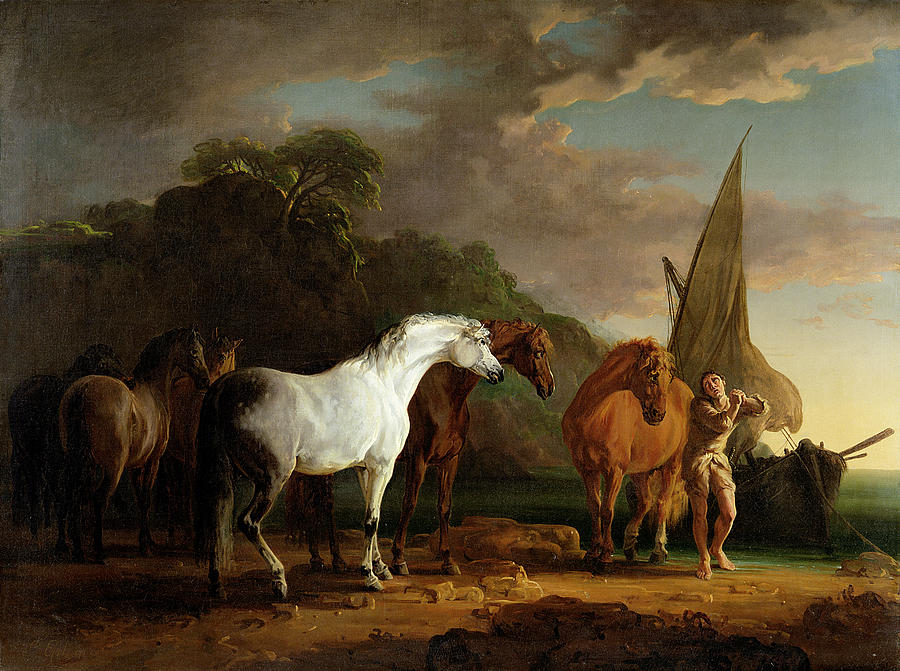
The land of the Houyhnhnms
While we had a bunch of idiots running around in Laputa, in this place we have a form of idyllic utopia. The Houyhnhnms are actually evolved horses who live in what is effectively an idyllic society. They are wise in their own ways in that they are peaceful and have no understanding of war. One section of this part, were Gulliver is telling them about war, reminded me of a number of other stories where a visitor from an alien planet comes to Earth and is appalled at the fact that we insist on running around and killing each other.
However, the Houyhnhnms are not a perfect race since they subjugate the humans of the region, whom they refer to as yahoos. In fact this is where the term entered the English language (these these days when we hear about Yahoos we automatically think of that internet company have ended up becoming second best to Google). The Yahoos are an uncivilised and barbaric lot, and in a way it seems that the Houyhnhnms want to keep them that way because as long as they remain uneducated they don't pose all that much of a threat.
Gulliver seems to find himself at home here because these creatures live out what was speculated as far back as Plato. We have a communal society that lives at peace, and it is that community that gives them strength. However they are an incredibly racist lot because despite Gulliver being enthralled by their way of life, to them he is nothing more than a sophisticated Yahoo.
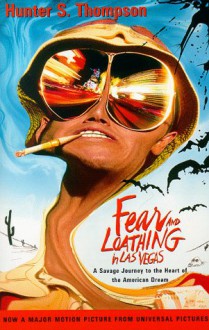


 Log in with Facebook
Log in with Facebook 

